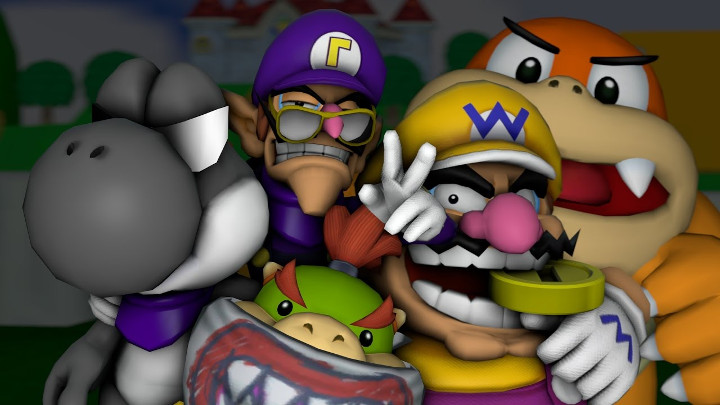8 Times Nintendo Done Messed Stuff Up
Sep 18, 2017 • Matthew Arcilla

Sep 18, 2017 • Matthew Arcilla
Everyone knows that for as successful as Nintendo is right now, their potential for success is even greater. The same decision making that makes them iconoclastic also makes them stubborn, and the same financial wisdom that makes them fat with spending reserves also makes them doggedly conservative.
And for a company as old as Nintendo, these traits have made mistakes unavoidable. True, no video game company exists as long as it does without fumbling here and there. But while some mistakes are a matter of simple oversight, others are the kind of poor judgment that makes you shake your head. Here are eight times Nintendo done messed stuff up.
In 2016, Nintendo released the Nintendo Classic Mini, a mini-console that emulates a thirty-year-old console. Leave it to Nintendo to underestimate the appeal of this device: the NES Classic, as it came to be known, sold out quickly and the shortage of units reduced nostalgic adults into screaming, crying children. This year, Nintendo is poised to release Super NES Classic Mini, and already fans are having trouble securing a unit for pre-order.
Thanks to online play functionality improvements made over their predecessors, multiplayer parties on the PlayStation 3 and the Xbox 360 became a big deal. Nintendo, on the other hand, had been dismissing online play since the Sega Dreamcast pioneered the idea on consoles. When they finally gave in, they made sure online play was as difficult as possible on the Wii and the DS, with an awkward friend code system and non-existent voice chat.
Despite the family friendly aesthetic of Smash Bros, its deep mechanics have spawned one of the most rabid communities. And despite strong following for a competitive scene, Nintendo tried to shut down a Smash tournament at the EVO Championship Series. Nintendo’s official line is that competition doesn’t fit with Nintendo’s brand vision for the game. A disappointing move that alienates fans.
Your reaction to the above image is probably, “God my eyes my eyes aaaaaah” and you can thank Nintendo for that. In the 90s, Nintendo foolishly letting Philips Interactive Media produce games based on Mario and Zelda characters for the CD-i console in releases like Zelda: The Wand of Gamelon, Hotel Mario and Link: Faces of Evil. These games were so terrible that Nintendo has closely guarded these characters ever since.
As previously established, supply shortages are the name of the game for Nintendo. It behooves fans to manage their expectations, but when Nintendo announced its own line of ‘toys-to-life’ products called amiibo, they still lost their shit. Over the years, production and supply of amiibo remains a mystery to everyone but Nintendo, which means fans have trouble knowing which figures will be in stock and the difficulty of collecting can deplete enthusiasm.
Gamers love to use YouTube and Twitch to show off their experience with games. That’s just the new normal and many companies accept that these online creators help spread the word about their games or generate enthusiasm. Nintendo is not one of these companies, choosing to collect ad revenue from such videos. That means although Nintendo’s biggest fans would love to feature their games, they avoid featuring them entirely.
For many gamers, Final Fantasy VII was a technical marvel and a revelation of what could be done on a home console. It defined the future of Japanese RPGs and is considered the crown jewel of the Sony PlayStation. But originally, it was set for release on the Nintendo 64, as the series had always found its home with Nintendo. But Square realized they couldn’t fit the game’s enormous data onto less than a dozen cartridges and struck a deal with the CD-based Playstation instead.
The ironic truth is that once upon a time, Sony and Nintendo once worked together to make a console. Unfortunately, they disagreed on the matter of storage medium. Nintendo was adamant about using cartridges as was tradition, but Sony was convinced that optical discs were the way forward. By parting ways, Nintendo allowed Sony to become its greatest competitor. Reportedly, Sony looked at the prototype and said, “So that’s it, huh? It’s some kind of play station?”
What’s your opinion of Nintendo? Share with us your thoughts below!
Input your search keywords and press Enter.
